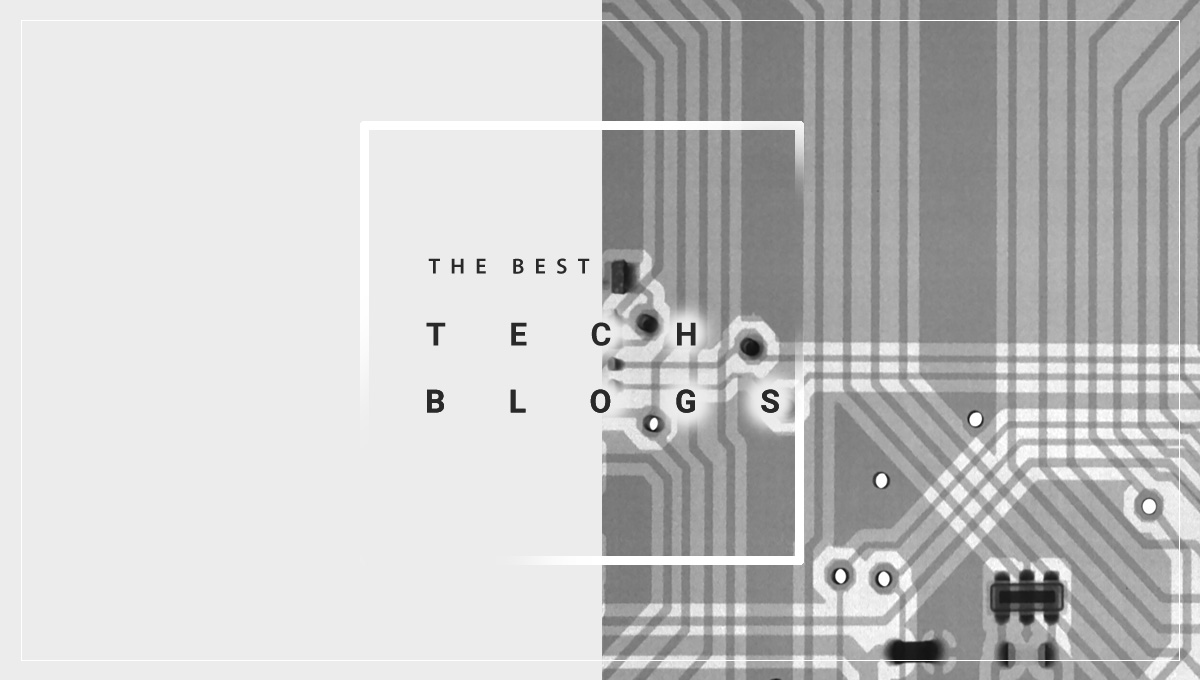How the Best tech blog Maintains You Upgraded on Cutting-Edge Gadgets and Software
How the Best tech blog Maintains You Upgraded on Cutting-Edge Gadgets and Software
Blog Article
Exactly How Blockchain Technology Is Revolutionizing Information Protection
Blockchain modern technology is basically changing the landscape of data safety and security by introducing a decentralized structure that assures boosted openness and strength. Unlike standard systems, which rely on central information databases, blockchain disperses data across a network, minimizing vulnerabilities and solitary points of failing. The use of advanced cryptographic strategies makes certain that information stays tamper-proof, fostering depend on among users and stakeholders.
The Fundamentals of Blockchain
Blockchain technology, a revolutionary concept in digital information monitoring, basically changes how information is saved and safeguarded. At its core, a blockchain is a distributed ledger that videotapes deals throughout a network of computer systems, making sure openness and immutability.
Secret to recognizing blockchain is the hashing procedure, which encrypts purchase data into a distinct alphanumeric code. This cryptographic feature makes certain that any alteration in the transaction data results in an entirely different hash, thereby safeguarding versus tampering. The consensus mechanism, one more crucial part, confirms and confirms brand-new transactions through a network of nodes, thereby getting rid of the requirement for a central authority.
Furthermore, blockchain's append-only framework ensures that information, when added, can not be erased or altered. This particular warranties a proven and permanent document of deals, cultivating count on amongst participants. As an outcome, blockchain offers a durable structure for information stability, offering industries a dependable method for tracking and handling digital information in a safe, transparent fashion.
Decentralization and Safety
Decentralization, a core principle of blockchain innovation, dramatically improves information protection by dispersing control throughout a network instead of depending on a particular, central entity. This distribution reduces the threat of single factors of failure, which prevail in traditional central systems. By dispersing data across countless nodes, blockchain ensures that even if one node is compromised, the entire network continues to be secure. This redundancy not only strengthens the stability of the information but additionally raises its resilience to cyberattacks and system failures.

Each individual in the network has access to the entire blockchain, enabling them to confirm and examine transactions separately. Overall, decentralization is important in improving data safety in blockchain networks.

Cryptographic Methods
At the heart of blockchain modern technology, cryptographic methods play an essential function in guarding data, guaranteeing both discretion and stability. These methods are foundational to the blockchain's ability to securely tape transactions in a decentralized manner. Cryptography in blockchain utilizes a mix of crooked and symmetric formulas to encrypt information, making it obtainable just to accredited events - Best tech blog. Public and personal vital sets are main to this process, enabling safe and secure verification and identity confirmation without disclosing sensitive information.
Hash features are one more essential element, changing input information right into a fixed-size string of personalities, efficiently producing a special electronic fingerprint for every block. This guarantees that any attempt to alter the data will cause a completely various hash, thus maintaining the immutability of the blockchain. Electronic trademarks validate the authenticity and honesty of transactions, offering a layer of non-repudiation.
The decentralized nature of blockchain, incorporated with durable cryptographic methods, eliminates the demand for intermediaries, reducing prospective susceptabilities. As blockchain modern technology evolves, advancements in cryptography such as zero-knowledge proofs and homomorphic encryption remain to enhance security measures, additionally strengthening data security in this cutting edge electronic journal system.
Usage Situations Across Industries

In the medical care industry, blockchain ensures the safe and secure storage and sharing of client documents, promoting interoperability while securing sensitive information from unauthorized access. This innovation encourages patients with control over their medical background and promotes smooth control amongst doctor.
Supply chain management advantages substantially from blockchain's unalterable journal, which guarantees traceability and authenticity straight from the source of items from beginning to consumer. By boosting openness, blockchain assists reduce issues such as counterfeiting and dishonest sourcing.
Additionally, blockchain's decentralized nature is reshaping the power industry by allowing peer-to-peer energy trading, where customers can buy and offer excess renewable resource directly. This fosters an extra reliable and sustainable energy ecosystem.
In the world of copyright, blockchain provides a tamper-proof system for developers to register and safeguard their jobs, guaranteeing rightful attribution and reasonable settlement. These diverse usage situations highlight blockchain's duty as a critical pressure in redefining information safety throughout markets.
Future of Data Protection
As we aim to the future of information protection, blockchain innovation is poised to play a critical duty in guarding digital details. With its decentralized and unalterable characteristics, blockchain offers a durable structure for securing sensitive information against unapproved access and cyber risks. This modern technology makes certain that once data is taped, it is virtually impossible to change without detection, hence offering a significant benefit over standard information storage space approaches.
The integration of blockchain with various other innovative modern technologies, such as fabricated intelligence and the Internet of Points (IoT), is anticipated to boost pop over here information defense methods better. By leveraging wise agreements, companies can automate and enforce safety and security protocols, lowering human mistake and enhancing efficiency. Additionally, blockchain's ability to give clear and traceable purchases will certainly strengthen trust fund and responsibility in data administration techniques.
As governing landscapes evolve, blockchain's compliance-friendly nature will certainly become significantly appropriate. It can assist companies fulfill rigid data security laws, such as the General Information Defense Guideline (GDPR) and the California Customer Privacy Act (CCPA), by offering verifiable records of data handling activities. Inevitably, blockchain's distinct attributes position it as a transformative device in the recurring quest to safeguard the electronic globe against ever-evolving cyber hazards.
Verdict
Blockchain technology stands for a standard shift in information safety and security by leveraging decentralization and cryptographic techniques to enhance openness, trust, and data integrity. Its ability to get rid of single points of failure and employ agreement devices significantly lowers the risk of fraud and this post cyberattacks. This ingenious framework not just encourages individuals with greater control over their information yet also lines up with regulatory conformity. As cyber hazards progress, blockchain becomes a vital device for robust data protection across different industries.
Blockchain innovation is essentially changing the landscape of information safety and security by introducing a decentralized structure that promises improved transparency and resilience. Unlike traditional systems, which depend on central information repositories, blockchain distributes data across a network, lessening susceptabilities and solitary factors of failure.Decentralization, a core principle of blockchain modern technology, substantially enhances information protection by distributing control across a network rather than relying on a singular, centralized entity.At the heart of blockchain technology, cryptographic techniques play an essential duty in guarding information, making certain both discretion and honesty.Blockchain modern technology stands for a standard change in information safety by leveraging decentralization and cryptographic methods to improve transparency, count on, and data integrity.
Report this page